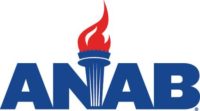GENEVA-The International Organization for Standardization (ISO) has published ISO/TS 16949: 2009, which specifies quality system requirements for suppliers in the automotive sector.
ISO/TS 16949: 2009,Quality management systems – Particular requirements for the application of ISO 9001: 2008 for automotive production and relevant service part organizations, replaces the 2002 edition, which has been used by the major automotive manufacturers to approve more than 35,000 organizations worldwide that produce and supply parts for the sector.
The 2009 edition results from the amendment of ISO/TS 16949: 2002 to ensure its compatibility with the requirements of ISO 9001: 2008,Quality management systems – Requirements.There are no essential changes to the technical requirements. The modifications relate mainly to the management requirements in the document to reflect the content of ISO 9001: 2008, and those that are intended to improve consistency with the environmental management system standard, ISO 14001: 2004.
The review of ISO/TS 16949: 2002 resulting in the 2009 edition was carried out by the International Automotive Task Force (IATF) and ISO technical committee ISO/TC 176, quality management and quality assurance. The generalized implementation of ISO/TS 16949 quality management systems by automotive suppliers is seen as an opportunity to improve quality while reducing costs.
The IATF has set a transition period of 120 days from date of publication of the new edition-June 15, 2009-for organizations to comply with the standard’s requirements. The details of the plan are given in a communiqué by the IATF Oversight Certification Body available atwww.iatfglobaloversight.org.
“With the global nature of the automotive industry quality management systems based on ISO/TS 16949:2009 throughout the supply chain will serve to streamline operations, and thus help organizations cut costs while improving efficiency,” says ISO Secretary-General Rob Steele. “The publication of ISO/TS 16949 will assist the sector and to reassure consumers and ensure significant benefits for automotive suppliers amid the challenges facing the industry."
The new document aims at the development of a quality management system that provides for continual improvement, emphasizing defect prevention and the reduction of variation and waste in the supply chain. Incorporating the requirements of ISO 9001: 2008, ISO/TS 16949: 2009 also includes detailed, sector-specific requirements for employee competence, awareness and training, design and development, production and service provision, control of monitoring and measuring devices, and measurement, analysis and improvement.
Get our new eMagazine delivered to your inbox every month.
Stay in the know with Quality’s comprehensive coverage of the manufacturing and metrology industries.
SIGN UP TODAY!Copyright ©2024. All Rights Reserved BNP Media.
Design, CMS, Hosting & Web Development :: ePublishing


